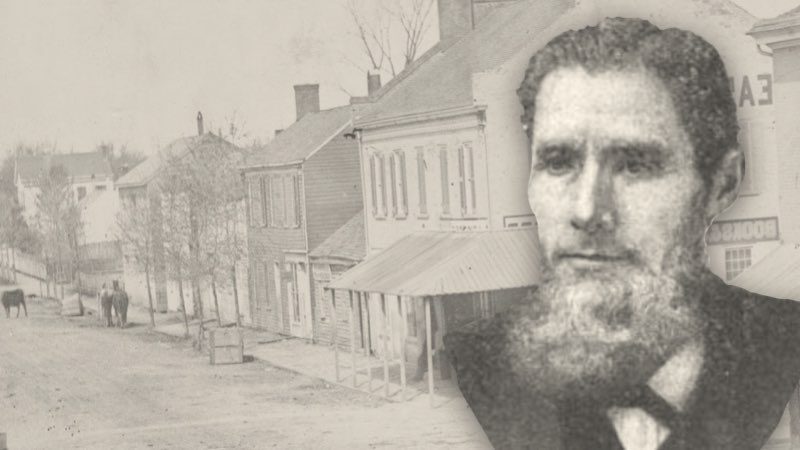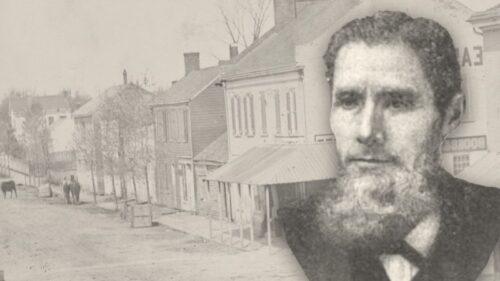-
Salvation
Trusting in the Spirit of truth to guide me into the truth as it is in Jesus, my heart is moved to write to the saved in Christ, of salvation. In doing so, the Bible alone must decide everything pertaining to salvation, but when this is done, then the testimony of godly and eminent writers among the saved, may be taken as confirmatory of this salvation in its power and comfort. Notwithstanding the overwhelming testimony of the holy Scriptures, that beside God there is no Savior, and that according to his mercy and by his grace he saves us, yet there has ever been a dispute in the world about salvation, and the principle and way of salvation. So it is well that we look…
-
The Election Of Grace
Beloved In Christ:—We are called upon to look to the Rock from whence we were hewn, as well as to the hole of the pit from whence we were digged, showing that we are from both earth and heaven. So, the song of the redeemed is, “He brought me up also out of an horrible pit, out of the miry clay, and set my feet upon a Rock, and established my goings.” Christ is this living and everlasting Rock, and upon this abiding foundation stone the Lord Jehovah builds his church. “To whom coming, as unto a living stone, disallowed indeed of men, but chosen of God, and precious, ye also, as lively stones, are built up a spiritual house, an holy priesthood, to offer…
-
Providence And grace
My Beloved Brethren:—Our God is the God of Providence, as he is the God of grace. His revealed word of truth in the Bible abundantly shows this, and it is also fully confirmed and clearly seen in his works of creation. For in all the universe of created existence and being infinite intelligence presides and omnipotent power controls, subjecting all to decreed orbits and limits, and directing all to ordained ends – the glory of the Creator. Were it not so, then God should be defeated, disappointed and frustrated in his infinite design and eternal purpose in his handiworks in the universe. But this cannot be. “The heavens declare the glory of God: and the firmament sheweth his handiwork. Day unto day uttereth speech, and…
-
Predestination
Beloved Brethren:—Predestination is a prerogative of all intelligent beings, and God possesses it pre-eminently and infinitely, because he is infinite in all his perfections or attributes, while all others are finite and limited. But the Almighty is unlimited. These are primary and self-evident truths. It would be impious folly in a creature to try to limit the infinite Creator. Speak we of knowledge, wisdom, counsel, purpose, power, truth, holiness, goodness – God is infinite in all these, as in all else. “God is in one mind, and none can turn him.” “I am the Lord, I change not.” Immutability belongs to Jehovah only. This places him above and independent of all outside and creature influence and control. God knows no will except his own. The…
-
The Origin And Teachings Of Conditional Primitive Baptists
The origin of the English Particular Baptists and the American Particular Baptists may be traced to the first half of the seventeenth century. Generally speaking, both groups came to embrace eighteenth century Hyper-Calvinism, but by the turn of the nineteenth century, were thrown into conflict by the newfangled teachings of Andrew Fuller. The English Particular Baptists separated into the Gillite (Hyper-Calvinist) and Fullerite (Moderate-Calvinist) camps (during the 1780’s), whereas the American Particular Baptists separated into the Primitive (Gillite) and Missionary (Fullerite) camps (during the 1830’s).
-
Book 3: Chapter 24, Election Confirmed By The Calling Of God
But that the subject may be more fully illustrated, we must treat both of the calling of the elect, and of the blinding and hardening of the ungodly. The former I have already in some measure discussed (chap. 22, sec. 10, 11), when refuting the error of those who think that the general terms in which the promises are made place the whole human race on a level. The special election which otherwise would remain hidden in God, he at length manifests by his calling. “For whom he did foreknow, he also did predestinate to be conformed to the image of his Son.” Moreover, “whom he did predestinate, them he also called; and whom he called, them he also justified,” that he may one day…




